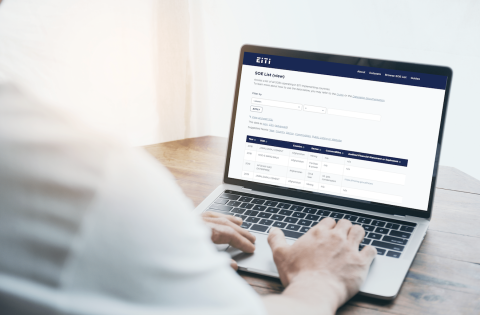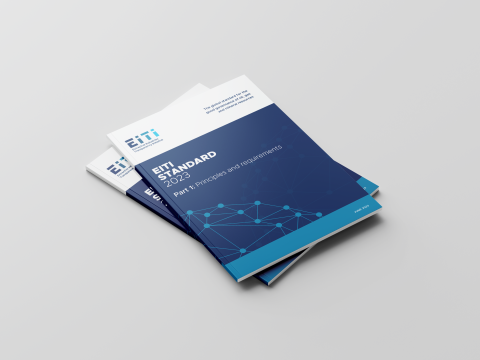
Kyrgyz Republic - Investigating beneficial ownership in the extractives industries
Kyrgyz Republic - Investigating beneficial ownership in the extractives industries
Bridging the information gap with the help of media
The EITI has been publishing reports for a decade now and our three stakeholders - governments, companies and civil society - regularly dig through and analyse the data. Unsurprisingly, all three groups are specialists in the extractive sector and conversations can quickly become a storm of acronyms. This isn’t intentional and it’s unavoidable to a certain extent when getting down to the gritty detail on issues like quasi-fiscal expenditures or the appropriate disclosure threshold for PEPs (politically exposed persons).
But it does put up barriers - even for engaged journalists who are familiar with financial investigations and want to know more and write about the management of extractives. Nevertheless, there have been a number of cases where EITI data have been used by journalists to aid their investigations and corroborate the information they’ve uncovered.
Most of these articles have been written by western journalists or campaigners and have been expertly presented and researched. However, they are inevitably written for western audiences and often have little impact in the countries from where the stories originates.
We saw first hand how the release of the Panama Papers, carried out by a global team of investigative journalists, got people around the world engaged on the issues of hidden ownership, offshoring and tax evasion. The EITI’s new beneficial ownership requirements will formalise the release of beneficial ownership data and will no doubt uncover past and current malpractice. As noted above, EITI Reports have had a similar effect in the past.
EITI Principle 4: We recognise that a public understanding of government revenues and expenditure over time could help public debate and inform choice of appropriate and realistic options for sustainable development.
Public debate and understanding is therefore vital for societies to move from transparency to accountability. With all of this in mind, we recently held a two-day workshop on investigating beneficial ownership in the extractive industries for journalists and CSOs in the Kyrgyz Republic.
Day 1 concentrated on theory and examples of stories on hidden ownership in the extractive sector. It included looking at a number of cases where data in EITI Reports have been used to corroborate journalists’ evidence in their investigations. We analysed common themes and hallmarks of hidden ownership in the extractives and looked at how to distinguish between legitimate and dodgy uses of offshore companies. Leading journalists from Ukraine went through the sources and methods they use when investigating hidden ownership, including: the Ukraine PEP registry, international ownership databases, googling techniques and speaking to people connected to the case. Oleksiy Shalaysky presented a project “Our Money” that targets corruption cases in public finances and the State Budget procurement. The project was founded in 2013 and, thanks to its investigations, 70 tenders were cancelled saving about USD 1.2 billion for the State Budget. In most of these cases, the issue of beneficial ownership was in the spotlight. This was followed by a presentation from Nick Mathiason, a UK investigative journalist, on how to ‘follow the money’ by reading between the lines in company accounts and reports.
Day 2 focused on changes to the Kyrgyz Sub-soil Law that include mandatory reporting of beneficial ownership in the extractives and the registration of PEPs. A presentation from Aicholpon Jorupbekova, managing partner at Kalikova & Associates, revealed how the information, once available, can be requested from the government. A practical exercise focused on the data currently accessible on the online Kyrgyz license registry: participants were asked to create a database of ownership in the extractives by commodity and company. Visiting the online registry was a first for a number of the attendees. They learned that the dataset could be used to indicate potential stories based on asking ‘Are there any monopolies operating in the country?’ ‘If so, for which commodities?’ ‘Are any of the listed owners linked to political leaders?’
Equipped with the basic ownership data for the Kyrgyz Republic, journalists are now able to continue their investigations by searching through the long list of resources compiled during the workshop: from company accounts to international stock exchanges and offshore registries.
The journalists are working on several blogs and have been encouraged to use the Kyrgyz EITI Reports as the authoritative source of data on revenues and ownership in the sector. We’ll post the blogs once they’re ready; in the meantime, check out the storify of the workshop which shows in more detail the content that was covered.





